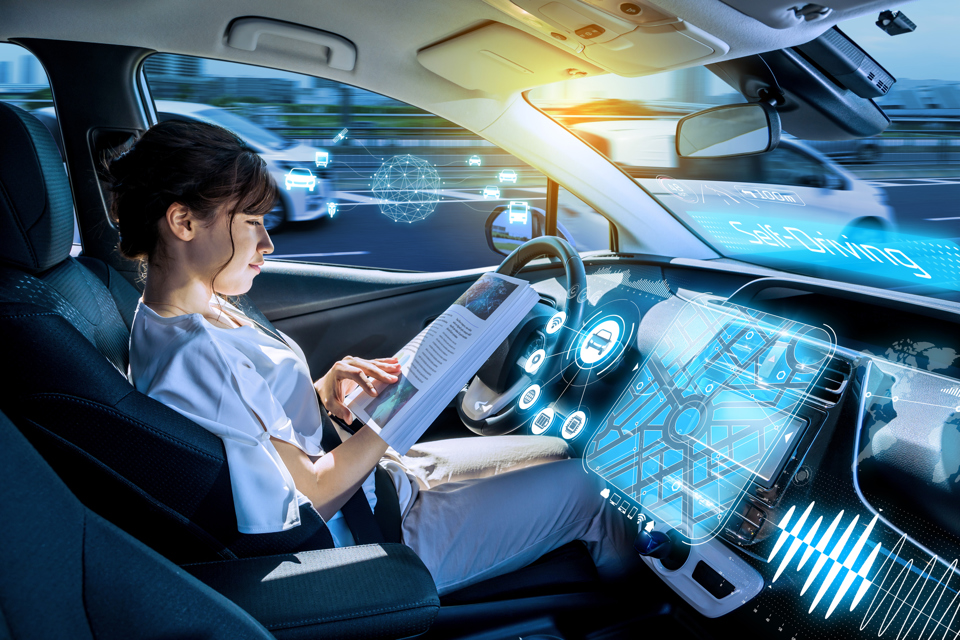Venson Automotive Solutions is urging fleet managers to future-proof the sector just as it is currently with electric vehicles (EVs).
Its latest free white paper - The Journey Towards Full Driving Automation – aims to aid businesses in keeping track of Connected Autonomous Mobility (CAM) developments and ultimately, recognise that the self-driving revolution is already here.
“CAM will have a significant impact on fleet managers and only by horizon-scanning, adapting and developing the fleet management role will UK businesses and vulnerable road users be able to benefit from it,” said Simon Staton, client management director at Venson Automotive Solutions.
“Just as the fleet industry is taking the reins and steering electrification in the UK, the importance of the fleet manager cannot be understated as we journey towards full driving automation.”
To understand how ChatGPT and AI will change your fleet, click here for a special report from Fleet News.
As fleets juggle lagging service, maintenance and repair (SMR) and elastic lead times on new vehicles though, CAM may seem too far into the future, according to Staton.
However, he said: “Driving learning and CPD on CAM is fundamentally important to our ability to steer development of the fleet function.
“Whether it is keeping tabs on UK self-driving regulation, the impact of CAM on the Highway Code or how connectivity, already enabling remote diagnostics, will empower prognostics - the ability to fix things before they go wrong, it is up to us as a sector to keep one step ahead.”
An automated vehicles bill was announced in the King’s Speech. The Government says that the automated vehicles bill will unlock a “transport revolution” by enabling the safe deployment of self-driving vehicles.
With human error being the causal factor in 90-95% of all road traffic accidents, vehicle manufacturers and UK Government are keen to bring the safety element of CAM front and centre, says Venson.
Yet along with promise of an improved environment for vulnerable road users, decreased traffic volumes, improved safety and more shared mobility, come a number of hurdles for those responsible for mobility within organisations.
Indeed, on-going consultation on self-driving regulation by the Law Commission outlines a new Automated Vehicle Act with totally new language and driver concepts which will have a direct impact on fleets.
These concepts range from an ‘Authorised Self-Driving Entity’ (ASDE) – the manufacturer or developer that puts the vehicle forward for authorisation and takes responsibility for its actions, to ‘No User-in-Charge’ (NUIC).
To obtain a NUIC operator licence fleet managers of passenger service and freight companies will need to meet certain requirements including ‘be of good repute’, and ‘have appropriate financial standing’.
Along with a new administrative framework, the 'C' in CAM, standing for connectivity, will also bring significant benefits.
Connected vehicles will offer massive safety and efficiency improvements, for example, by warning about stopped vehicles, or advising on speed to get through traffic lights on green.
The benefits of keeping up to date with such technology and the time and money saving knock-on effects are clear, says Venson.
With some models likely to have the self-driving technology as ‘optional’, or as a ‘connected update’, it would be possible to change a vehicle’s capabilities in real-time. So, it will be imperative that fleet managers and drivers have a full and clear understanding of the vehicle’s limitations before and after an update.
Staton said: “There has been much talk about the dawn of fully autonomous vehicles. However, many of the vehicles we drive today already encompass this technology, safe self-driving will change the world for the better and fleet operators will be in the vanguard, taking on vital new responsibilities and reaping the commercial benefits.
“For this to be the case though, we must keep pace with the developing technology, so we can help steer the changing role of fleet management into the future.”





















Login to comment
Comments
No comments have been made yet.